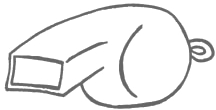

Morality of Whistleblowing
The prevalence of whistleblowing, made more intense by the proliferation of the internet, has raised serious questions about the benefits and risks involved in exposing secret information. While an organization such as WikiLeaks may derive its motivation from the noble ideals of transparency and openness, many have questioned whether such ideals come at too high a price. Particularly when government information is involved, there is a real possibility of putting the lives of both soldiers and citizens at risk should the right secret document fall into the wrong hands. In an age of increased transparency and near-complete connectedness, the ethical implications of online whistleblowing deserve careful examination.
Secrecy and Confidentiality
Secrecy and confidentiality have become staples of governmental and corporate operations throughout the world. The United States government has a hierarchical system of classified information, stretching from “unclassified” to “top secret”. For any level at or above “confidential”, the government expects that releasing such classified documents publicly would do some degree of damage to national security. In the corporate world, private contracts such as non-disclosure agreements govern the ability of employees to distribute secret information and trade secret laws protect corporations’ rights to hold confidential information.
With this array of well-established processes for protecting secret information, it is of no surprise that many individuals and organizations accept the notion of confidentiality as necessary in a world of intense competition and international aggression. However, there is a bridge to be crossed when this secret information goes beyond protecting positive interests and instead serves to cover up wrongdoing. It is at this juncture where whistleblowers are thought to be most valuable, and where whistleblowing organizations such as WikiLeaks derive their idealistic motivations. Despite the practical importance of confidentiality, there exists an ethical imperative to break such confidentiality should it be causing harm to a society by obfuscating misdeeds.
National Security
On the other side of the ethical implications of whistleblowing is the potential for exposed secret information to cause collateral damage. In response to WikiLeaks’ publication of the Afghan War Diaries, U.S. Defense Secretary Robert Gates said that he was “mortified” and “appalled” by the move, citing a “moral culpability” because “this information puts those in Afghanistan who have helped us at risk”. As is clear in these comments, along with those of Admiral Mike Mullen of the Joint Chiefs of Staff, there is a compelling ethical argument against this sort of whistleblowing. By publishing online what the U.S. government has deemed to be potentially harmful information, WikiLeaks’ ideals of openness and transparency conflict with a moral obligation to protect the lives of others and ensure national security.
In response to these ethical allegations, advocates for government whistleblowing point out that no concrete examples yet exist of harmful events directly caused by the information that WikiLeaks has published. While the lack of such tangible examples is certainly a point against the collateral damage argument, the potential for general adverse effects remains a reality as far as the U.S. government is concerned. In the end, there exists a tradeoff between two positive but conflicting moral imperatives: keeping the government fully accountable for its actions and protecting the government’s security. In an internet-driven age of transparency, the former consideration may begin to take priority over the latter, as digital technology drives people and organizations to become more open, whether of their own accord or at the hands of groups like WikiLeaks.